
Bali: The Island of Gods
Bali, known as the Island of Gods, is a tropical paradise in Indonesia. This beautiful island is famous for its stunning beaches, lush green landscapes, and vibrant culture. From the bustling streets of Kuta to the serene rice terraces of Ubud, Bali offers something for every type of traveler. The island is rich in cultural heritage, with its many temples and traditional ceremonies providing a glimpse into the local way of life. One of the most iconic sites is the Uluwatu Temple, perched on a cliff overlooking the Indian Ocean. The temple is a perfect spot to watch the sunset and witness a traditional Kecak dance performance. For nature lovers, Bali is a haven. The island is home to many natural wonders, including the Sacred Monkey Forest in Ubud, the breathtaking waterfalls of Gitgit and Sekumpul, and the volcanic Mount Batur. Adventure seekers can enjoy activities like surfing in Canggu, diving in Tulamben, or trekking through the lush jungles. Bali is also a destination for relaxation and wellness. The island boasts numerous spa resorts, yoga retreats, and wellness centers that offer a range of treatments and activities to rejuvenate the body and mind. The local cuisine, with its mix of spices and flavors, is another highlight, with dishes like Nasi Goreng and Satay being a must-try. Whether you are looking for adventure, culture, or relaxation, Bali has it all. Its unique blend of natural beauty, rich traditions, and modern amenities makes it a must-visit destination for any traveler.
Local tips in Bali
- Visit during the dry season (April to October) for the best weather.
- Respect local customs and dress modestly when visiting temples.
- Bargain at local markets, but do so politely.
- Rent a scooter to explore the island at your own pace.
- Try the local food at warungs for an authentic culinary experience.
- Use bottled water for drinking and brushing your teeth to avoid stomach issues.
Neighbourhoods in Bali
Bali: The Island of Gods
Bali, known as the Island of Gods, is a tropical paradise in Indonesia. This beautiful island is famous for its stunning beaches, lush green landscapes, and vibrant culture. From the bustling streets of Kuta to the serene rice terraces of Ubud, Bali offers something for every type of traveler. The island is rich in cultural heritage, with its many temples and traditional ceremonies providing a glimpse into the local way of life. One of the most iconic sites is the Uluwatu Temple, perched on a cliff overlooking the Indian Ocean. The temple is a perfect spot to watch the sunset and witness a traditional Kecak dance performance. For nature lovers, Bali is a haven. The island is home to many natural wonders, including the Sacred Monkey Forest in Ubud, the breathtaking waterfalls of Gitgit and Sekumpul, and the volcanic Mount Batur. Adventure seekers can enjoy activities like surfing in Canggu, diving in Tulamben, or trekking through the lush jungles. Bali is also a destination for relaxation and wellness. The island boasts numerous spa resorts, yoga retreats, and wellness centers that offer a range of treatments and activities to rejuvenate the body and mind. The local cuisine, with its mix of spices and flavors, is another highlight, with dishes like Nasi Goreng and Satay being a must-try. Whether you are looking for adventure, culture, or relaxation, Bali has it all. Its unique blend of natural beauty, rich traditions, and modern amenities makes it a must-visit destination for any traveler.
When is the best time to go to Bali?
Iconic landmarks you can’t miss
Tanah Lot
Experience the breathtaking beauty and spiritual significance of Tanah Lot, Bali's iconic sea temple with stunning ocean views and vibrant culture.
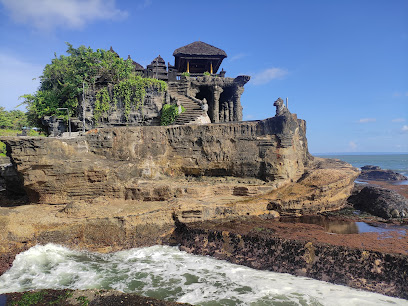
Garuda Wisnu Kencana Cultural Park
Discover the majesty of Balinese culture at Garuda Wisnu Kencana Cultural Park, featuring stunning landscapes and captivating traditional performances.
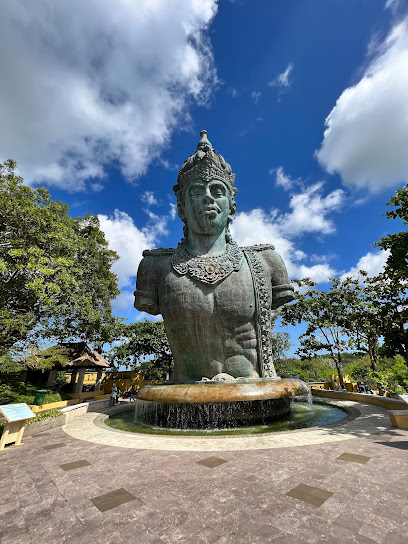
Sacred Monkey Forest Sanctuary
Discover the Sacred Monkey Forest Sanctuary in Ubud, Bali – a stunning nature preserve filled with playful monkeys, ancient temples, and lush greenery.
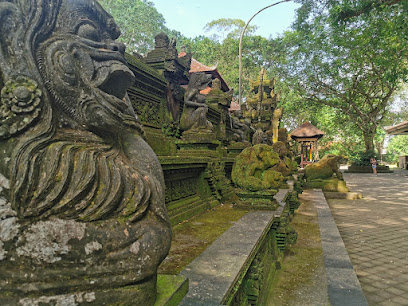
Ceking Rice Terrace
Experience the stunning beauty of Ceking Rice Terrace in Tegallalang, Bali, where nature and culture blend seamlessly in a breathtaking landscape.
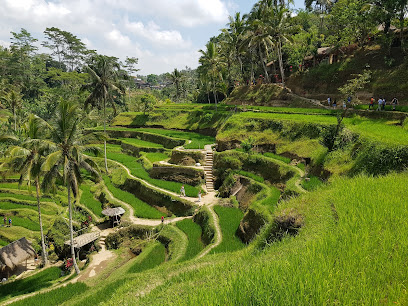
Uluwatu Temple
Experience the spiritual beauty of Uluwatu Temple in Bali, where culture, stunning ocean views, and magical sunset performances come together.
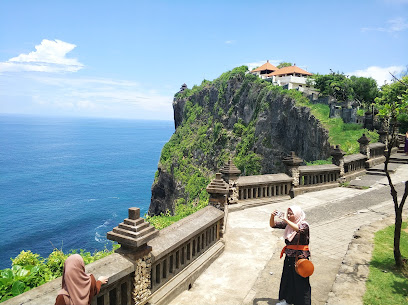
Ulun Danu Beratan Temple
Discover the breathtaking beauty of Ulun Danu Beratan Temple, a serene Hindu temple on Lake Beratan, Bali, surrounded by lush landscapes and rich culture.
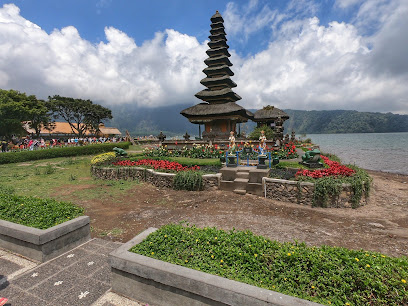
Pura Tirta Empul
Explore the spiritual heart of Bali at Pura Tirta Empul, where sacred waters and rich traditions converge in a breathtaking temple experience.
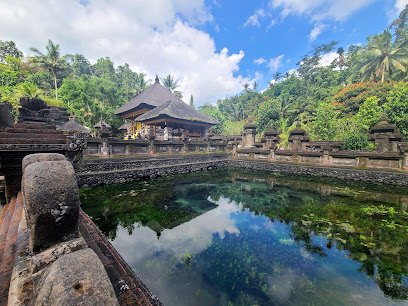
Tirta Gangga
Experience the tranquility and beauty of Tirta Gangga, Bali's enchanting water palace, where culture meets nature in a stunning landscape.

Bajra Sandhi Monument
Discover the rich history and cultural significance of the Bajra Sandhi Monument, a stunning tribute to the Balinese people's resilience in the heart of Denpasar.
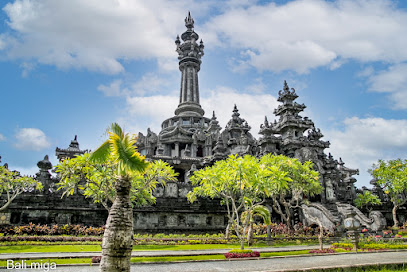
Besakih Great Temple
Discover the spiritual essence of Bali at Besakih Great Temple, the island's largest and holiest Hindu temple complex surrounded by breathtaking landscapes.

Taman Ujung
Discover the enchanting beauty of Taman Ujung Water Palace in Bali, a serene escape filled with stunning architecture and lush gardens.
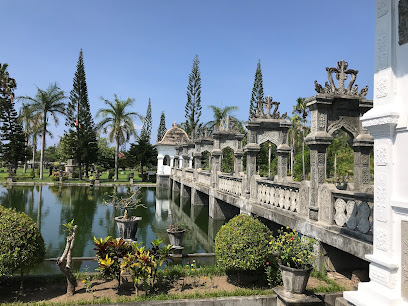
Taman Ayun Temple
Explore Taman Ayun Temple, a UNESCO World Heritage Site in Bali, known for its stunning architecture, serene gardens, and rich cultural significance.

Bali Bomb Memorial
Explore the Bali Bomb Memorial, a poignant and beautiful tribute to resilience and remembrance in the heart of Kuta, Bali.
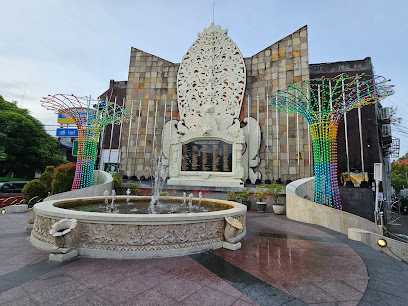
Goa Gajah
Explore the enchanting Goa Gajah in Bali, a stunning Hindu temple filled with history, intricate carvings, and serene natural beauty.
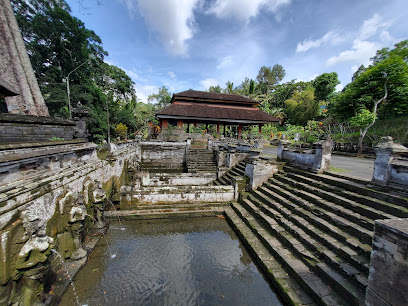
Goa Lawah Temple
Discover the spiritual beauty of Goa Lawah Temple, a stunning Hindu temple in Bali, home to a captivating cave filled with bats and rich cultural heritage.
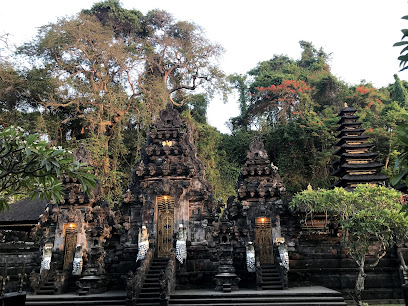
Unmissable attractions to see
Tanah Lot
Discover the breathtaking beauty and spiritual essence of Tanah Lot, Bali's iconic coastal temple, famous for its stunning sunsets and rich heritage.
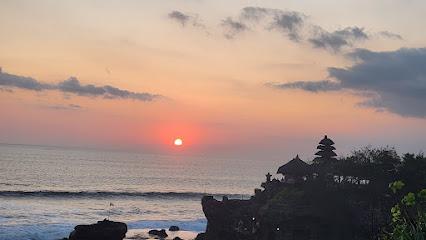
Garuda Wisnu Kencana Cultural Park
Experience Bali's cultural heart at Garuda Wisnu Kencana Cultural Park, showcasing stunning sculptures and vibrant performances amid lush landscapes.
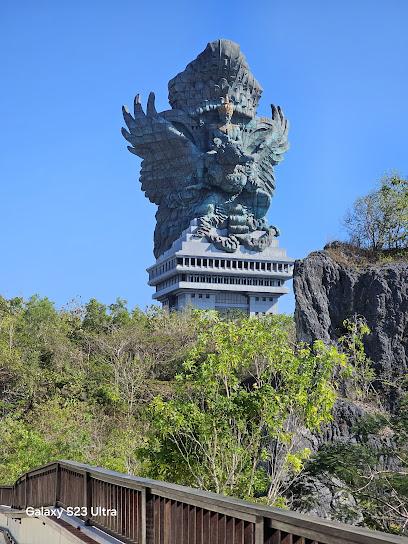
Sacred Monkey Forest Sanctuary
Experience the magic of the Sacred Monkey Forest Sanctuary in Ubud, a unique blend of nature, culture, and playful monkeys in the heart of Bali.

Ceking Rice Terrace
Discover the enchanting Ceking Rice Terrace in Bali, where breathtaking views and rich cultural experiences await every traveler.

Uluwatu Temple
Experience the breathtaking views and rich culture at Uluwatu Temple, a stunning cliffside sanctuary in Bali, Indonesia.
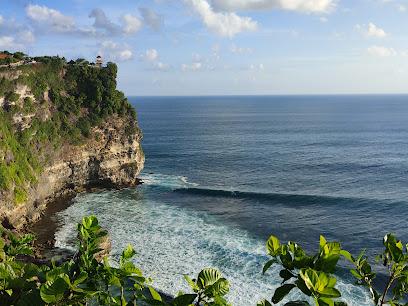
Ulun Danu Beratan Temple
Discover the enchanting beauty and spiritual significance of Ulun Danu Beratan Temple, a breathtaking Hindu temple on the shores of Lake Beratan in Bali.
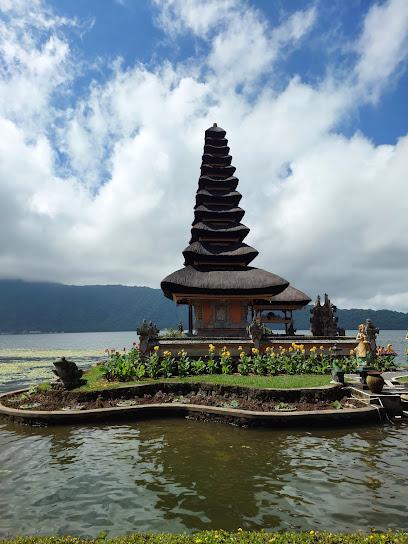
Kuta Beach
Discover Kuta Beach, Bali's lively coastal haven known for its golden sands, thrilling surf, and vibrant nightlife. Experience the magic of Bali's beaches.
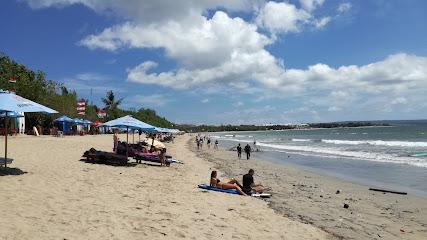
Tegenungan Waterfall
Experience the breathtaking beauty of Tegenungan Waterfall, a must-see natural gem in Bali's lush Gianyar Regency, perfect for nature lovers and adventure seekers.
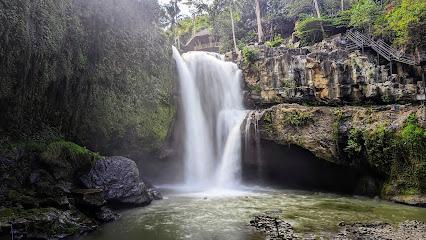
Pura Tirta Empul
Discover the spiritual heart of Bali at Pura Tirta Empul, where sacred springs and rich traditions offer a unique cultural experience.
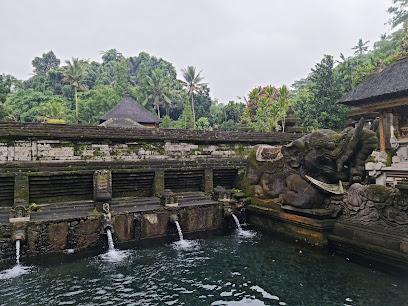
Tirta Gangga
Explore the enchanting Tirta Gangga Water Palace in Bali, a tranquil retreat filled with stunning gardens, serene ponds, and rich cultural heritage.
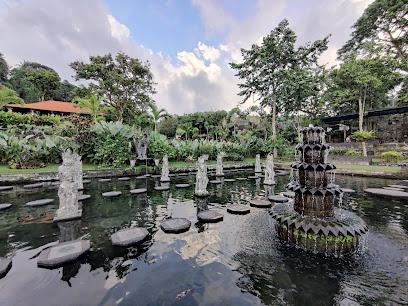
Bali Zoo
Discover the vibrant wildlife and lush landscapes at Bali Zoo, a premier animal park and nature preserve in the heart of Bali.

Bali Botanical Garden
Discover the lush beauty of Bali Botanical Garden, a stunning tourist attraction showcasing Indonesia's diverse plant life and tranquil landscapes.
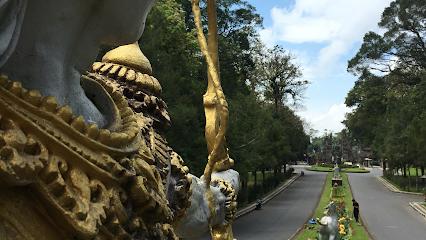
Waterbom Bali
Experience the ultimate water adventure at Waterbom Bali, Asia's top-rated water park, featuring thrilling rides and serene relaxation amidst lush landscapes.
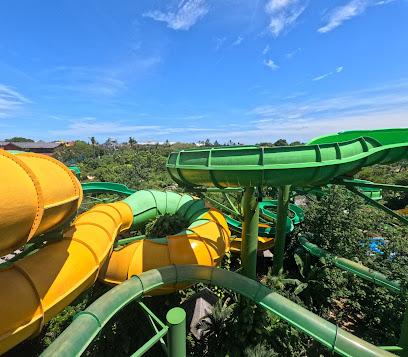
Kelingking Beach
Discover the breathtaking beauty of Kelingking Beach, a stunning coastal paradise on Nusa Penida, Bali, perfect for adventure seekers and nature lovers.
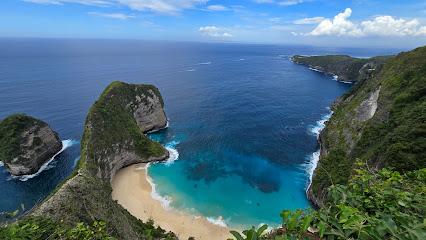
Alas Harum Bali
Explore Alas Harum Bali, a stunning destination filled with lush rice terraces, thrilling adventures, and a delightful vegetarian dining experience.
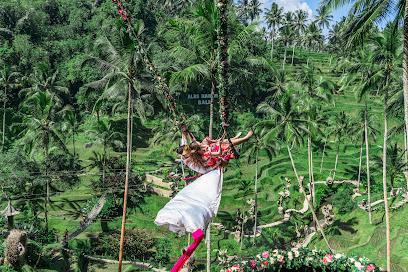
Essential places to dine
Ling-Ling's Bali
Experience the best of Asian fusion cuisine at Ling-Ling's Bali, where every meal is a celebration of flavors in a chic setting.
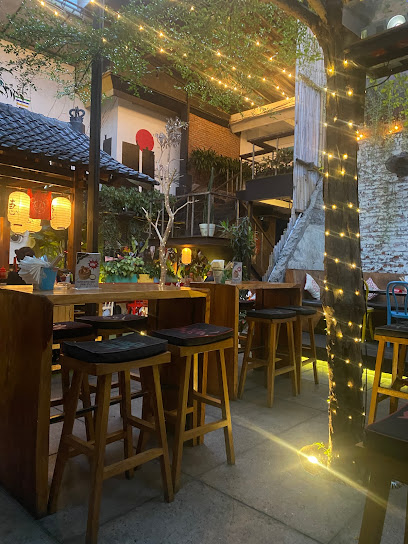
Gooseberry Restaurant
Discover exquisite flavors at Gooseberry Restaurant in Bali - where fine dining meets casual elegance amidst breathtaking scenery.
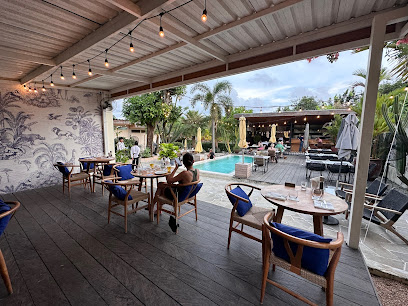
Cuca Restaurant
Discover the vibrant flavors at Cuca Restaurant in Jimbaran - where exquisite tapas meet innovative cocktails amidst Bali's stunning scenery.
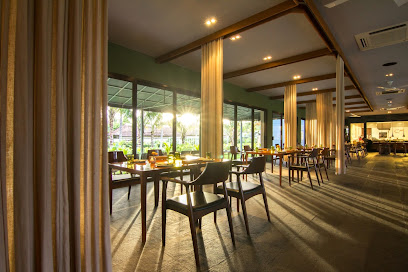
Warung Nia Balinese Food & Pork Ribs
Experience authentic Balinese cuisine at Warung Nia in Seminyak – home to delicious pork ribs and traditional flavors.
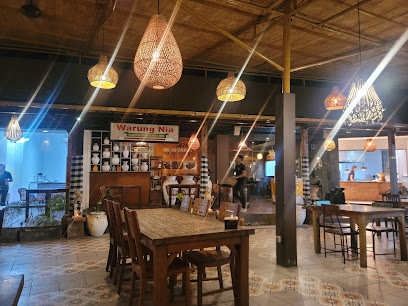
Mamasan Bali
Discover Mamasan Bali - where Asian flavors come alive in an exquisite fusion dining experience amidst the beauty of Bali.
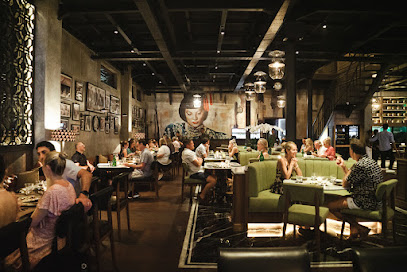
This Is Bali - Balinese Food & Desserts
Discover authentic Balinese cuisine at This Is Bali - a must-visit restaurant in Ubud for every food enthusiast.
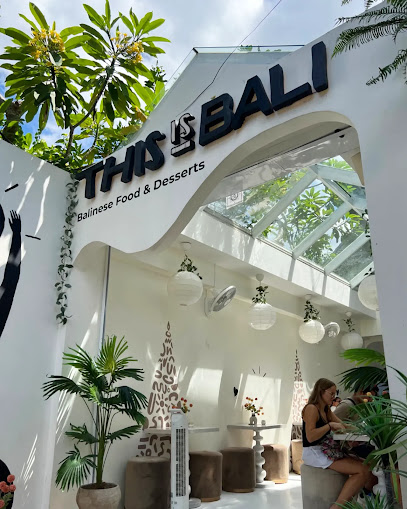
Kebun Bistro
Experience the fusion of French, Italian, and Mediterranean flavors at Kebun Bistro in Ubud – where every meal is a celebration.
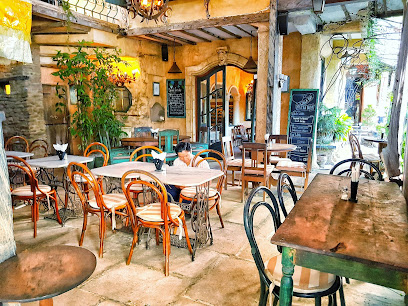
Merah Putih
Experience the essence of Indonesian cuisine at Merah Putih in Seminyak – where tradition meets modern elegance.

Chez Gado Gado
Discover exquisite Indonesian cuisine with stunning ocean views at Chez Gado Gado in Seminyak – an unforgettable dining experience awaits.
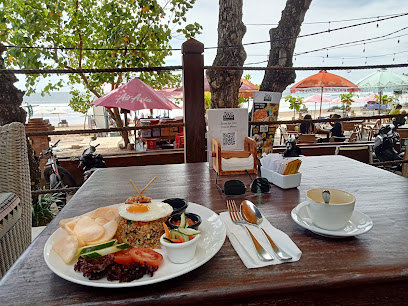
Bebek Bengil Nusa Dua
Experience authentic Balinese cuisine at Bebek Bengil Nusa Dua – where every meal is a feast for the senses amidst breathtaking coastal views.
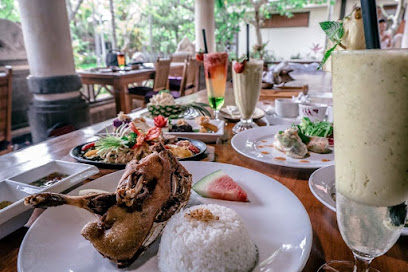
Sangsaka Restaurant
Experience authentic Indonesian flavors at Sangsaka Restaurant in Bali, where culinary tradition meets modern elegance.
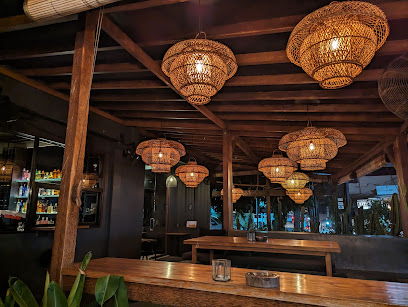
Herbivore by Locavore
Experience exquisite plant-based fine dining at Herbivore by Locavore in Ubud, Bali—where culinary innovation meets sustainability.
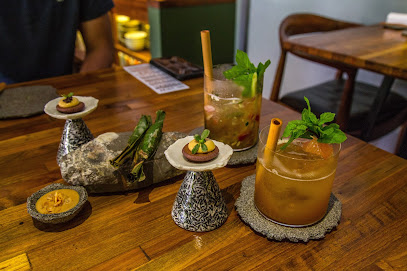
Sea Circus Restaurant & Bar
Experience the vibrant flavors of Bali at Sea Circus Restaurant & Bar – where colorful dishes meet an unforgettable atmosphere.
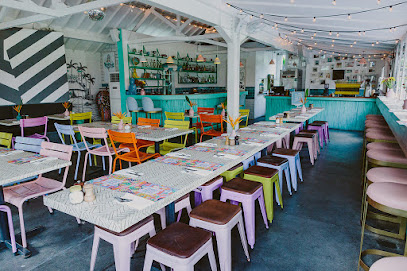
Hujan Locale: Modern Indonesian Restaurant
Discover the essence of modern Indonesian cuisine at Hujan Locale in Ubud - where tradition meets innovation in every dish.
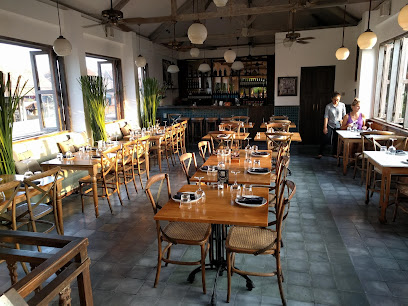
BATIK Restaurant Bar
Discover the vibrant flavors of Southeast Asia at BATIK Restaurant Bar in Seminyak - where every dish tells a story.
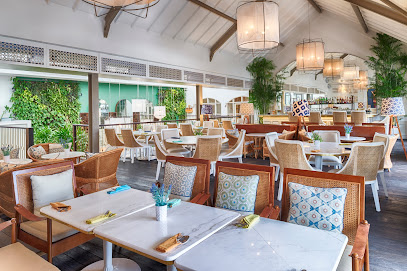
Markets, malls and hidden boutiques
Beachwalk Shopping Center
Discover a blend of shopping, dining, and entertainment at Beachwalk Shopping Center, the ultimate destination in Bali's Kuta.

Geneva
Discover the essence of Balinese craftsmanship at Geneva, your go-to gift and craft shop in the heart of Kerobokan, Bali.
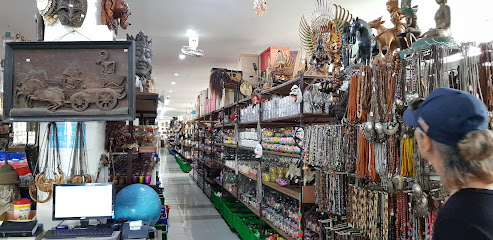
Uluwatu Handmade Balinese Lace
Explore the artistry of Uluwatu Handmade Balinese Lace, where tradition meets fashion in exquisite designs that embody Bali's rich cultural heritage.

Threads of Life Store
Explore Threads of Life Store in Ubud for exquisite handcrafted textiles and unique gifts that celebrate Bali's rich cultural heritage and support local artisans.
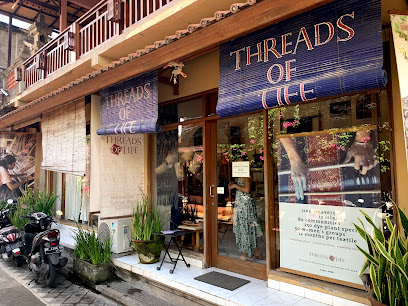
Wake Bali Art Market
Explore Wake Bali Art Market for unique Balinese souvenirs, local arts and crafts, and a vibrant cultural experience in Kuta, Bali.
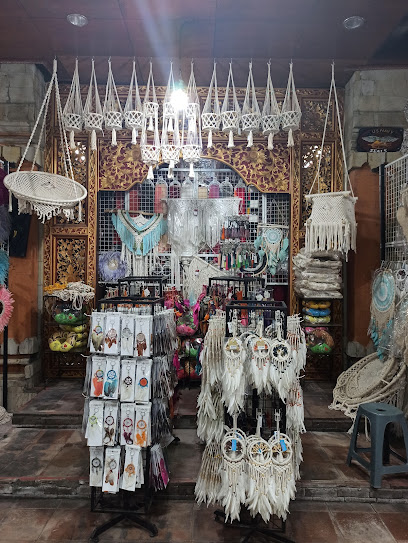
Uluwatu Handmade Balinese Lace - Ubud
Explore the enchanting world of Uluwatu Handmade Balinese Lace in Ubud, where exquisite craftsmanship meets rich Balinese culture.
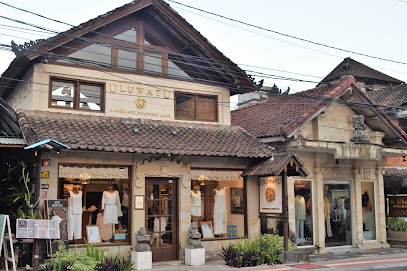
Hedonist Store Bali
Explore the artistic spirit of Bali through unique clothing and accessories at Hedonist Store Bali, a must-visit for every fashion enthusiast.

Daun The Gift Shop
Explore the vibrant world of Balinese souvenirs at Daun The Gift Shop in Kuta, a must-visit destination for unique gifts and local handicrafts.
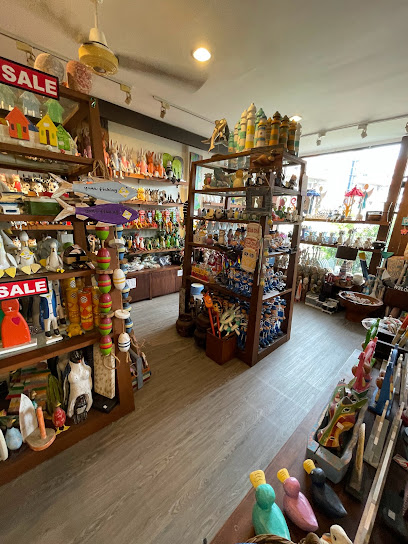
Toko Emporium
Explore Toko Emporium in Seminyak for unique gifts and souvenirs that capture the spirit of Bali's rich culture and artistry.
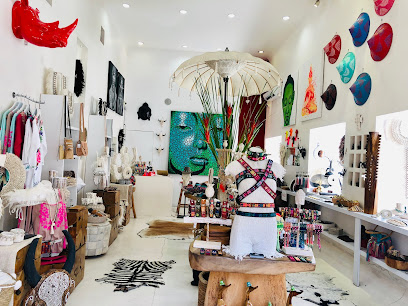
Bali in Bali
Explore the vibrant gift shop in Nusa Dua, Bali, featuring exquisite crafts, souvenirs, and unique gifts that embody Balinese culture.
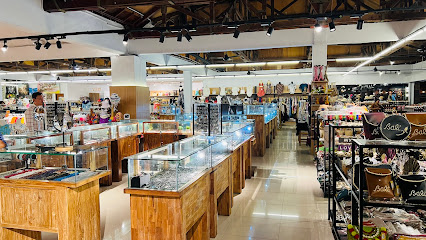
onelove vintage & designer
Explore sustainable fashion at OneLove Vintage & Designer, Bali's favorite boutique for unique vintage and designer clothing.

BIASA Batu Belig
Explore the artistic spirit of Bali at BIASA Batu Belig, where fashion meets local culture in a stunning boutique setting.

Uluwatu Handmade Balinese Lace - Oberoi Shop
Explore the charm of Uluwatu Handmade Balinese Lace, where exquisite craftsmanship meets authentic Balinese tradition in every piece.
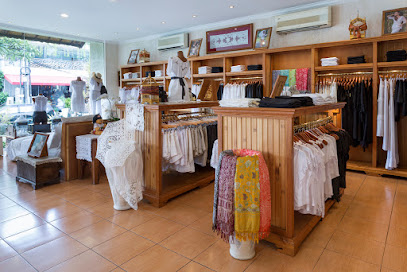
Baliboo Fashion Shop
Discover unique fashion pieces in the heart of Bali at Baliboo Fashion Shop, a boutique that celebrates local craftsmanship and contemporary style.
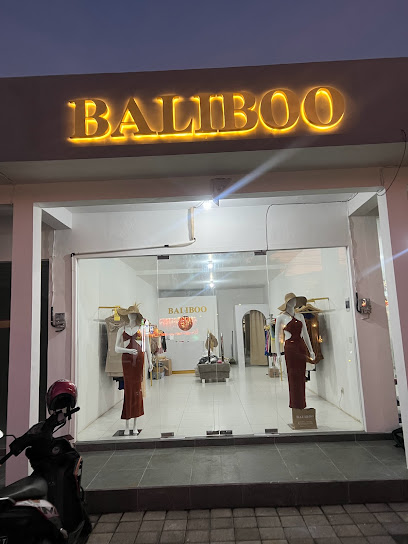
The Find Bali
Discover the charm of Balinese craftsmanship at The Find Bali, a boutique brimming with unique treasures and cultural artistry.
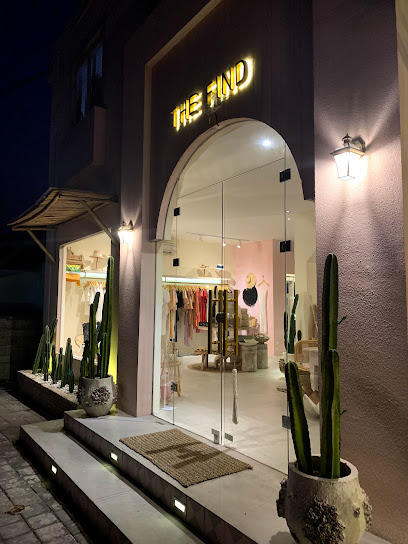
Essential bars & hidden hideouts
La Plancha
Experience the vibrant culture of Bali at La Plancha, a beachfront bar in Seminyak known for its colorful ambiance and delicious cocktails.
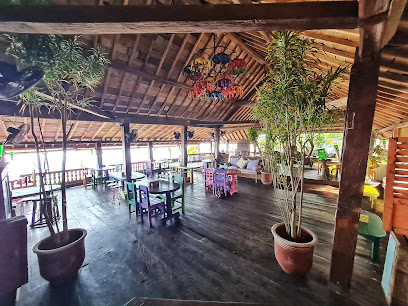
Rock Bar
Discover Rock Bar in Bali – a breathtaking cliffside venue offering stunning ocean views, exquisite cocktails, and vibrant nightlife.
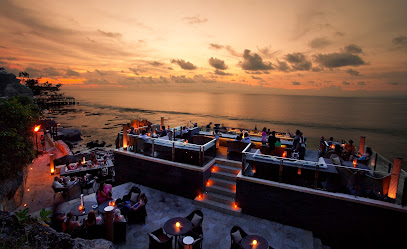
Old Man's
Old Man's in Canggu: A lively bar and restaurant with stunning beach views, delicious food, and vibrant nightlife, perfect for tourists seeking fun in Bali.
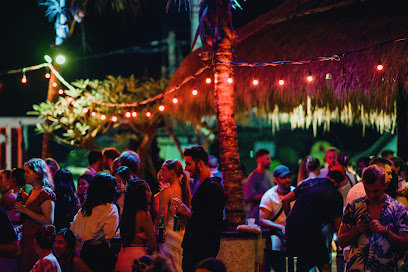
The Forge Bali
Experience the vibrant culinary scene of Bali at The Forge Bali, a gastropub and sports bar offering delicious food and a lively atmosphere.
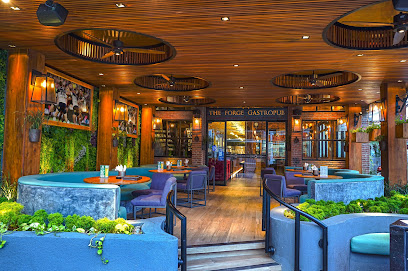
Woobar
Experience the vibrant nightlife and stunning ocean views at Woobar, Bali's ultimate beachside bar and event venue.
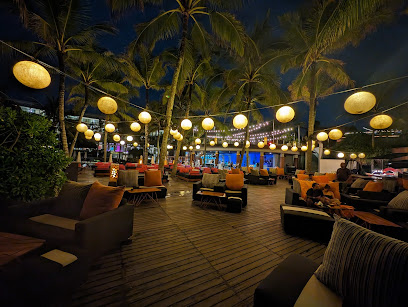
Red Carpet Champagne Bar
Indulge in a luxurious champagne experience at Red Carpet Champagne Bar, where elegance meets vibrant nightlife in the heart of Seminyak, Bali.
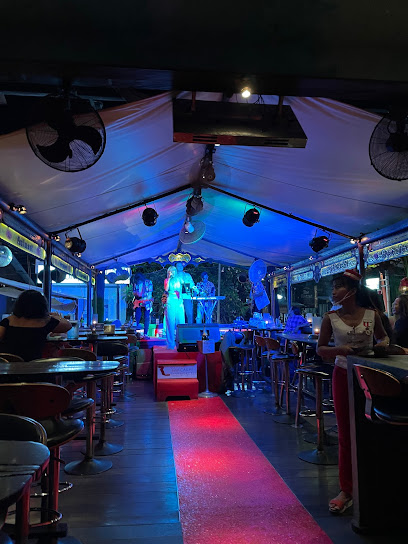
Pretty Poison
Discover the vibrant atmosphere of Pretty Poison, a live music bar in Bali that combines art, fashion, and unforgettable performances.
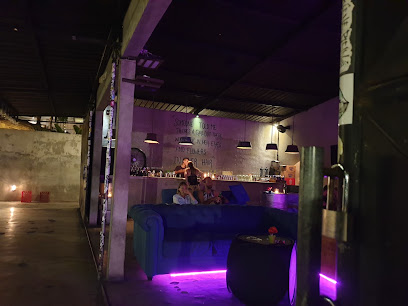
The Orchard Bar & Restaurant
Experience the vibrant fusion of local and international cuisine at The Orchard Bar & Restaurant in Seminyak, Bali, where live music meets culinary excellence.
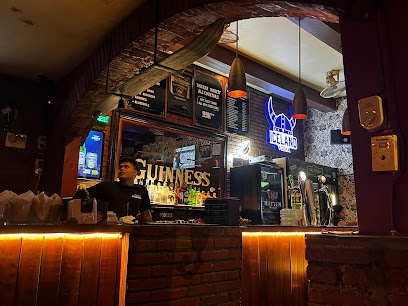
UNIQUE Rooftop Bar & Restaurant
Experience breathtaking ocean views and vibrant Mexican flavors at UNIQUE Rooftop Bar & Restaurant in Bali, the perfect evening destination for tourists.
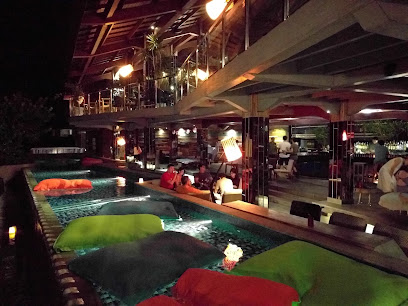
Beach Bar - Alila Seminyak
Experience the vibrant atmosphere and exquisite cocktails at Beach Bar - Alila Seminyak, your ultimate beachside retreat in Bali.
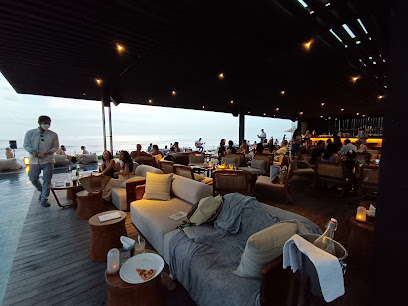
The Shady Pig
Experience the vibrant nightlife of Bali at The Shady Pig, a cocktail bar and disco club offering delicious tapas and spectacular drinks.

40 Thieves
Experience the vibrant nightlife of Bali at 40 Thieves, a premier cocktail bar known for its unique drinks and lively atmosphere.

Double-Six Rooftop
Discover stunning sunset views and exquisite dining at Double-Six Rooftop in Seminyak, Bali's premier bar and grill destination.
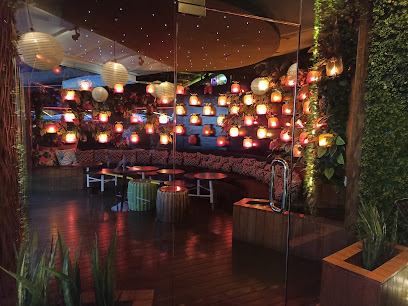
Rosey Murphy’s Irish Pub
Discover the vibrant blend of Irish culture and Balinese charm at Rosey Murphy's Irish Pub in Seminyak, Bali.

Heaven Sports Bar & Rooftop
Experience the vibrant nightlife of Bali at Heaven Sports Bar & Rooftop, where live music and exquisite cocktails blend seamlessly.
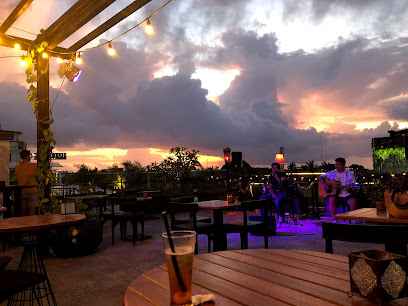
Local Phrases
-
- HelloOm Swastiastu
[om-swa-sti-astu] - GoodbyeSampai jumpa
[sam-pai-jum-pa] - YesIya
[ee-ya] - NoTidak
[tee-dak] - Please/You're welcomeMatur suksma
[ma-tur-sooks-ma] - Thank youTerima kasih
[te-ree-ma-ka-see] - Excuse me/SorryMaaf
[ma-af] - How are you?Apa kabar?
[a-pa-ka-bar] - Fine. And you?Baik. Bagaimana denganmu?
[ba-ik. ba-gai-ma-na den-gan-mu] - Do you speak English?Bisa bicara bahasa Inggris?
[bee-sa bee-tsa-ra ba-ha-sa ing-gris] - I don't understandSaya tidak mengerti
[sa-ya tee-dak men-ger-tee]
- HelloOm Swastiastu
-
- I'd like to see the menu, pleaseSaya ingin melihat menu, tolong
[sa-ya in-gin me-li-hat me-nu, to-long] - I don't eat meatSaya tidak makan daging
[sa-ya tee-dak ma-kan dai-ning] - Cheers!Selamat minum!
[se-la-mat mi-num] - I would like to pay, pleaseSaya ingin membayar, tolong
[sa-ya in-gin mem-ba-yar, to-long]
- I'd like to see the menu, pleaseSaya ingin melihat menu, tolong
-
- Help!Tolong!
[to-long] - Go away!Pergi!
[per-gi] - Call the Police!Panggil polisi!
[pang-gil po-li-si] - Call a doctor!Panggil dokter!
[pang-gil dok-ter] - I'm lostSaya tersesat
[sa-ya ter-se-sat] - I'm illSaya sakit
[sa-ya sa-kit]
- Help!Tolong!
-
- I'd like to buy...Saya ingin membeli...
[sa-ya in-gin mem-bel-i] - I'm just lookingSaya hanya melihat-lihat
[sa-ya hun-ya me-li-hat-li-hat] - How much is it?Berapa harganya?
[be-ra-pa har-ga-nya] - That's too expensiveItu terlalu mahal
[i-tu ter-la-lu ma-hal] - Can you lower the price?Bisa ditawar?
[bee-sa dee-ta-war]
- I'd like to buy...Saya ingin membeli...
-
- What time is it?Jam berapa sekarang?
[jam be-ra-pa se-ka-rang] - It's one o'clockJam satu
[jam sa-tu] - Half past (10)Setengah (sepuluh)
[se-ten-gah (se-pu-luh)] - MorningPagi
[pa-gi] - AfternoonSiang
[si-ang] - EveningSore
[so-re] - YesterdayKemarin
[ke-ma-rin] - TodayHari ini
[ha-ri i-ni] - TomorrowBesok
[be-sok] - 1Satu
[sa-tu] - 2Dua
[du-a] - 3Tiga
[ti-ga] - 4Empat
[em-pat] - 5Lima
[li-ma] - 6Enam
[e-nam] - 7Tujuh
[tu-juh] - 8Delapan
[de-la-pan] - 9Sembilan
[sem-bi-lan] - 10Sepuluh
[se-pu-luh]
- What time is it?Jam berapa sekarang?
-
- Where's a/the...?Dimana ada/...?
[di-ma-na a-da/...?] - What's the address?Alamatnya di mana?
[a-lam-at-nya di ma-na] - Can you show me (on the map)?Bisakah Anda menunjukkan kepada saya (di peta)?
[bee-sa-kah an-da me-nun-juk-kan ke-pa-da sa-ya (di pe-ta)] - When's the next (bus)?Kapan bus selanjutnya?
[ka-pan bus se-lan-jut-nya] - A ticket (to ....)Tiket (ke ....)
[ti-ket (ke ....)]
- Where's a/the...?Dimana ada/...?
History of Bali
-
Bali’s history dates back to prehistoric times. Early human remains and artifacts suggest that Bali was first inhabited around 2000 BCE by Austronesian people. These early settlers brought with them agricultural techniques and animistic beliefs, which laid the foundation for Bali’s cultural development.
-
The influence of Indian culture and religion began to permeate Bali around the 1st century CE, as evidenced by early inscriptions and temple ruins. By the 9th century, Bali had become a predominantly Hindu society, integrated into the larger Hindu-Buddhist Majapahit Empire from Java. This period saw the construction of many temples and the establishment of the caste system, which still influences Balinese society today.
-
In the 14th and 15th centuries, the Majapahit Empire began to decline due to internal strife and the spread of Islam in the Indonesian archipelago. Many Hindu nobles, priests, and artisans fled to Bali, bringing with them their culture and traditions. This migration reinforced Hinduism in Bali, even as Islam became the dominant religion in the rest of Indonesia.
-
The first European contact with Bali was made by Portuguese explorers in the early 16th century. However, it was the Dutch who eventually colonized the island in the 19th century. The Dutch East India Company initially focused on trade, but by the mid-1800s, they had established political control. The colonial period was marked by several violent conflicts, including the infamous Puputan wars, where Balinese royals and their followers chose mass ritual suicide over surrender.
-
During World War II, Bali was occupied by Japanese forces from 1942 to 1945. This period was characterized by harsh military rule and forced labor. However, it also sparked nationalist sentiments among the Balinese, contributing to the broader Indonesian struggle for independence.
-
Following Japan’s surrender in 1945, Indonesia declared its independence. However, it was not until 1949 that the Dutch officially recognized Indonesia’s sovereignty. Bali became an integral part of the newly formed Republic of Indonesia. The post-independence period saw Bali recover and rebuild, with a focus on preserving its unique cultural heritage while integrating into the modern Indonesian state.
-
In the latter half of the 20th century, Bali transformed into a major international tourist destination. The island’s stunning landscapes, vibrant culture, and warm hospitality attracted visitors from around the world. Despite the pressures of modernization and tourism, Balinese people have managed to maintain their traditional practices and rituals, making Bali a living museum of its rich history and culture.
Bali Essentials
-
Bali is served by Ngurah Rai International Airport (DPS), located in Denpasar. The airport receives numerous international flights from major cities around the world. From the airport, you can hire a taxi, use a ride-sharing app, or arrange for a private transfer to your accommodation. Domestic flights also connect Bali to other parts of Indonesia, with frequent services from Jakarta, Surabaya, and other major cities.
-
Getting around Bali can be done through various modes of transportation. Taxis and ride-sharing services like Grab are widely available. Renting a scooter is a popular option among tourists, but ensure you have an international driving permit and wear a helmet. Bemos (local minibuses) are an inexpensive way to travel short distances, although they can be crowded. Car rentals with drivers are also available for more comfortable travel around the island.
-
The official currency of Bali is the Indonesian Rupiah (IDR). ATMs are readily available in major tourist areas, and credit cards are widely accepted in hotels, restaurants, and larger shops. However, it's advisable to carry some cash, especially when visiting rural areas or local markets. Money changers are also available, but ensure you use reputable ones to avoid scams.
-
Bali is generally a safe destination for tourists, but it's important to stay vigilant. Petty crimes like pickpocketing and bag snatching can occur, especially in crowded areas like Kuta, Seminyak, and Ubud. Avoid walking alone at night in poorly lit areas and always keep an eye on your belongings. Be cautious of scams, especially when exchanging money or booking tours. In case of natural disasters like earthquakes or volcanic eruptions, follow the advice of local authorities.
-
In case of emergency, dial 112 for immediate assistance. Bali has hospitals and clinics in major areas such as Denpasar, Kuta, and Ubud. It's advisable to have travel insurance that covers medical emergencies. For minor health issues, pharmacies are widely available, and many pharmacists speak English. For police assistance, you can visit the nearest police station or contact the tourist police at 0361-754599.
-
Fashion: Do dress modestly, especially when visiting temples. Avoid wearing revealing clothing. Religion: Do respect local customs and traditions. Always wear a sarong and sash when entering temples. Public Transport: Do be respectful and courteous. Don't haggle aggressively with drivers. Greetings: Do greet people with a smile and a slight bow. A handshake is also common. Eating & Drinking: Do try local dishes and accept food offerings graciously. Don't use your left hand to eat or pass food, as it is considered impolite.
-
To experience Bali like a local, visit traditional markets such as Pasar Badung in Denpasar, where you can buy fresh produce and local handicrafts. Participate in local ceremonies and festivals, which are an integral part of Balinese culture. Try traditional Balinese food at warungs (local eateries) for an authentic culinary experience. For a unique adventure, rent a scooter and explore the island's hidden beaches and scenic rice terraces.
Trending Landmark in Bali
Nearby Cities to Bali
-
Things To Do in Surabaya
-
Things To Do in Yogyakarta
-
Things To Do in Semarang
-
Things To Do in Makassar
-
Things To Do in Balikpapan
-
Things To Do in Bandung
-
Things To Do in Jakarta
-
Things To Do in Settlement
-
Things To Do in Poon Saan
-
Things To Do in Flying Fish Cove
-
Things To Do in Drumsite
-
Things To Do in Greta Beach
-
Things To Do in Suai
-
Things To Do in Bobonaro
-
Things To Do in Ermera



















